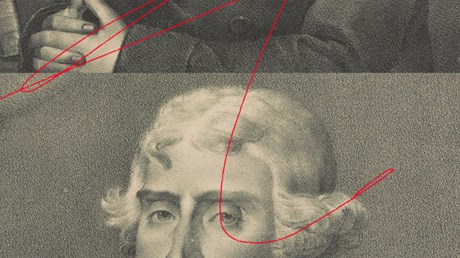A new biography maps out the moral tensions that tormented his mind and tainted his legacy.

Thomas Jefferson continues to inspire and divide Americans. Even though he still ranks in the top 10 in C-SPAN’s Presidential Historians Survey, recent years have witnessed Jefferson’s name and image removed from schools, libraries, and the halls of government. Jefferson’s statue at his own University of Virginia served as a rallying point for white supremacists during the summer of 2017. All the while, Daveed Diggs’s flamboyant portrayal of him in the musical Hamilton was winning acclaim on Broadway.
Much of this controversy stems from Jefferson’s dual identity as the author of the Declaration of Independence and his status as one of the nation’s most prominent slaveholders. Add to this the unsettling reality that Jefferson fathered at least six children with an enslaved woman, Sally Hemings, and it’s little wonder that many Americans find themselves wondering how such a man could have penned the words “All men are created equal.” With the 250th anniversary of the American Revolution looming, it is difficult to predict if and how Jefferson’s name will be invoked.
For many, Jefferson’s life is nothing but a testimony to his own hypocrisy, while others see Jefferson as a visionary bound to the conditions of his time. The latest book from historian Thomas Kidd, Thomas Jefferson: A Biography of Spirit and Flesh, attempts to shed light on Jefferson’s puzzling philosophy and problematic past.
Dilemmas and dramas
Kidd’s goal is not to write a new life story of Jefferson, but rather to illuminate and grapple with his ethical and moral universe. Because of this, Kidd’s biography is amazingly (and mercifully) succinct, at least compared to the mammoth ...
from Christianity Today Magazine
Umn ministry


.gif)

.gif)
.gif)
